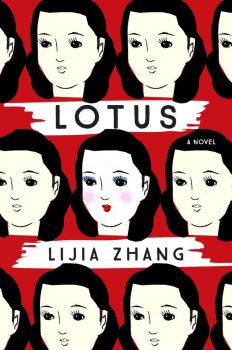
Lotus by Lijia Zhang – Available Here
I have strange pet peeves when it comes to writing. There are certain turns of phrases that when used demand being expanded upon. The one that rings clearest and earliest in this book is, “There was something about _____”. It doesn’t matter what it is, what you are waxing on about, when those words are written I demand that you try and pin down that something. You might not win, but if you are going to put some emotional weight into a moment you need to try and make it poetry, to show the reader why it works for the character.
In Lotus, this never happens.
Instead, the entire book reads something like a rushed draft of something that is both pointless and charmless. It is the story of a female prostitute, supposedly influenced by the deathbed confession of Zhang’s grandmother about having been a prostitute during Mao’s Great Revolution. It doesn’t seem like it should be hard to build characters in a setting like that, but here I can’t even name one, except perhaps the photographer who I frankly feel got the short end of the stick in the novel.
Character pasts are explained clumsily through paragraphs injected into the narrative, sometimes because there is about to be a call back to that thing we had no previous awareness of, and sometimes just because reasons, I guess. And I might be able to forgive that if the writing was better, but it’s not. It’s serviceable and as flat as the Midwestern plains. There is no heaviness, no moments of shock, curiosity, or interest to be found anywhere in it.
There was a moment, a single fractious moment where I thought, hoped that the book was going to touch on something powerful. In that moment where Lotus is finally able to walk away from being a prostitute and attempt to find a sense of normalcy in the world she left her rural past to pursue. There could be drama, deep reservoirs of doubt, internal monologues, arguments, symbolism!
Nope, Lotus pretty much just acts the grateful rescued woman until Zhang appears to written herself into a corner. At which point she sends Lotus off to a Buddhist monastery for all of thirteen minutes, her friends come and say “Hi”, and suddenly she’s an awakened feminist ready to find her destiny even if it means fighting the goddamn patriarchy.
That’s it. That’s how it happens.
There is no physical moment of romantic or societal pressure to act as trigger, just some prostitutes and some prayer beads. I’m not sure how long into the writing process that Zhang decided that the crux of Lotus’s awakening needed to be both empty and religious, but it was will forever be the wrong call
This doesn’t work. None of it works.
The book itself was interesting in at least attempting to explore leaving the world’s oldest profession, the difficulties that holds, but as problems mount, instead of unifying with Bing, or anyone else in her life, she just says ‘screw it’, runs off, and comes back happy and changed just in time for the book to end. None of this book works.
It is a book. That is the best thing I can say about it. It is flat, when it engages the Chinese culture well it comes dangerously close to being engaging, but these are single sentences and nowhere near a whole.
Share this:“Drink more. Then nothing matters.” — Lijia Zhang, Lotus




![Perfectly Normal (The Perfects Book 1) by [Martin, Amy]](/ai/072/535/72535.jpg)
